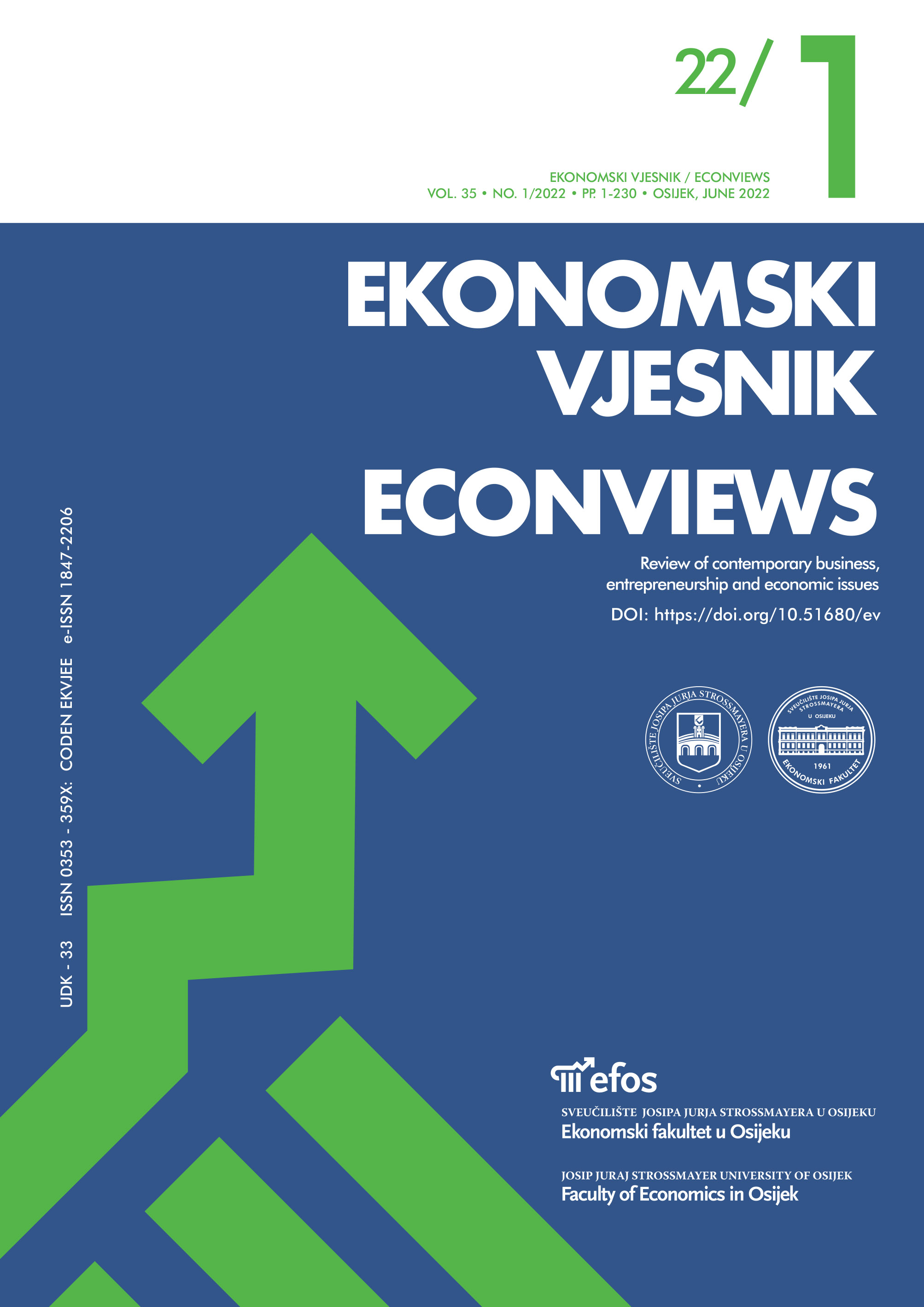How efficient are banks in Croatia?
How efficient are banks in Croatia?
Author(s): Katerina Fotova Cikovic, Violeta CvetkoskaSubject(s): Economy, Financial Markets
Published by: Sveučilište Josipa Jurja Strossmayera u Osijeku, Ekonomski fakultet u Osijeku
Keywords: banking sector; relative efficiency; DEA; BCC; targets for improvement;
Summary/Abstract: Purpose: This paper measures the relative efficiency of commercial banks in the Republic of Croatia in a period of eleven years (2009-2019) by using the leading non-parametric Data Envelopment Analysis (DEA) methodology.Methodology: In the selection of variables (inputs and outputs) and the DEA model, we have followed Banker et al. (2010).Results: Based on the results obtained, we have found that the average efficiency of the Croatian banking sector in the observed period is 92%. The highest (96%) and the lowest (90%) mean efficiency score were achieved in 2009 and in 2017, respectively. In addition, we have analyzed several banks that show significant changes in the efficiency scores, and provided targets for improvement of their efficiency.Conclusion: Croatia is a developing country characterized by a bank-based financial system and this study shows that its banking system is highly efficient, but certain relatively inefficient banks should improve their efficiency. Therefore, our findings provide valuable information for regulators, policymakers and bank management in order to take proper actions to maintain the stability of the key players in the financial system in Croatia.
- Issue Year: 35/2022
- Issue No: 1
- Page Range: 139-150
- Page Count: 12
- Language: English

